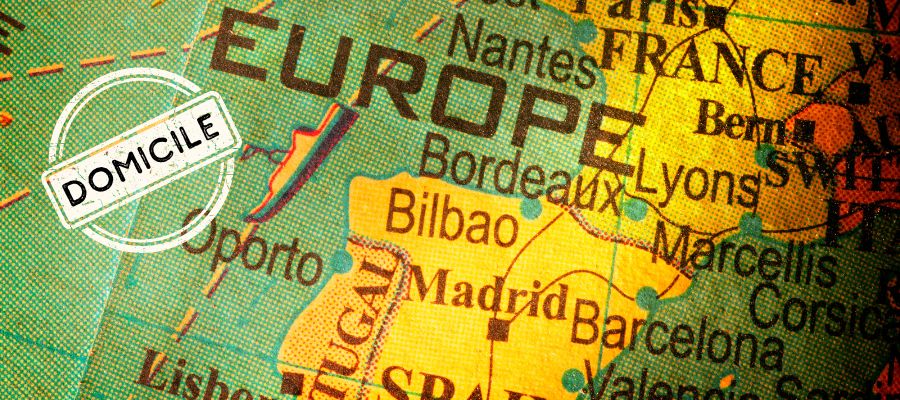Domicile is a highly complex area of law and one which many misunderstand. For British nationals here in Portugal, it is a key factor in the application of UK inheritance tax (IHT) and often one that is incorrectly planned for.
The facts about Domicile
By Portugal team
This article is published on: 19th May 2024
What is domicile?
Firstly, domicile is not residency and they should not be confused. Domicile broadly determines IHT and residency determines income and capital gains tax.
There is no official definition of domicile (which only adds to the complexity) but a very loose definition is ‘where you have a permanent home’. However, just because you have moved to Portugal, established residency and a home here, it does not automatically change your domicile status.
Domicile is a subjective concept that is usually only challenged once you are gone, so planning correctly during your lifetime and leaving the right evidence behind for your executors is crucial if you intend to make a non-UK domicile claim.
How is it determined?
You can only have one domicile at a time and there are several types, the most relevant for expats are ‘origin’ and ‘deemed’.
‘Origin’ is acquired at birth, usually from your father and is never fully lost. It can be suspended by acquiring a new domicile of choice, but it is adhesive and will revive if the new domicile is lost. For example, if you moved to Portugal and satisfied a domicile of choice of Portugal but then moved to France, your UK domicile would revive on the move to France, and you would have to wait and satisfy the requirements again to shed your domicile of origin again – even if you never set foot in the UK again.
Acquiring a domicile of choice involves forming a clear and fixed intention for a new country to be your permanent home and therefore requires permanent residence.

Effects of changing domicile
The worldwide estates of UK domiciles are assessed for IHT in the UK, even if you live elsewhere. This is assessed at 40% tax above the threshold of £325,000 per person.
For non-UK domiciles, only UK-based assets are subject to UK IHT e.g. UK property or company shares. Non-UK domiciles also have a £325,000 exemption per person to set against any UK situ assets.
How to change domicile
The burden of proof lies with the person claiming the change and the standard is particularly onerous.
There is no checklist and your circumstances are looked at as a whole. Some factors that might be considered are family and business ties, location of friends and social interests, location of assets, acquisition of citizenship or languages spoken.
Traps and mistakes to avoid
Non-domiciles by choice with a UK domicile of origin must be very careful with return visits to the UK, especially if they have a second home there.
Incorrectly using IHT shelters such as QNUPS. These are intended to provide pension-saving provisions for non-UK residents but are often misadvised. Therefore, if HMRC deems it has been set up for tax-saving purposes rather than pension income provision it is likely to fail. Some ways these are open to failure are if you have ‘too much’ wealth in there and it is clearly too much to support the level of income you require for retirement, holding the majority of your wealth within QNUPS, or holding assets that cannot provide that income e.g. art or non-let property, just to name a few. HMRC are vigilant so careful planning is required.
Usually, any challenge will come after your death, and it is up to your personal representatives to prove your intentions in life and gather evidence – which may not be possible, so you must ensure your record-keeping and evidence is strong.


